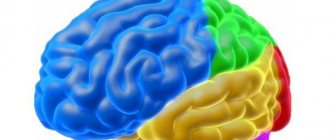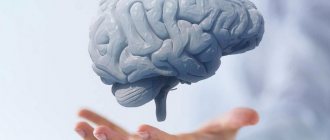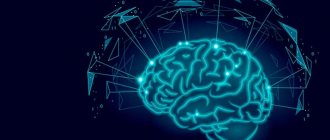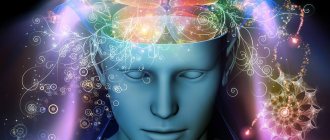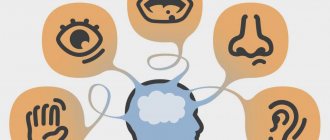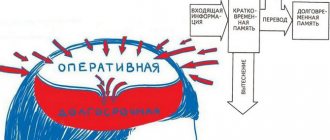If a person’s memory was like the Internet and would provide the necessary information upon the first request, it would make life much easier. However, it is unknown whether we could use it correctly and would not drown in a sea of information.
The human brain is capable of working so efficiently that so far artificial intelligence developers have not been able to surpass it. This is largely due to the unique memory design.
What is memory and how does it work
Memory allows us to relive the past
Memory is the ability of the nervous system to store and transmit information received by a person every second.
Neurophysiologists, psychologists and other scientists study how human memory works.
Thanks to memory, events and images of the past appear in detail before our consciousness.
The brain also remembers how we reacted to these events and allows us to subsequently reproduce this reaction better and more accurately if necessary. These properties of memory underlie learning.
The nervous system processes signals received by the senses and also works with thoughts and imaginary pictures. They are first imprinted and then stored at the level of reflexes and connections between neurons in the brain.
The memory mechanism is associated not only with remembering, recognizing and reproducing fragments of experience, but also with forgetting unnecessary or unimportant information and repressing traumatic experiences.
However, scientists believe that absolutely all information received during life is stored in the head, even if the consciousness is unable to remember it.
Memory works most effectively in the first 5 years, when the child learns to speak and experiences the world for the first time. Subsequently, there is a gradual deterioration of memory, and in old age this can cause incapacity.
Memory, with which we interact with our own life experiences, underlies all cognitive functions, such as thinking and speech.
Is a complete mapping of our brain impossible?
The project of mapping all the connection points of neurons is called connectome. So far, we have only been able to describe the connectome of a nematode worm measuring about 1 mm, whose nervous system consists of just over 300 neurons.
As for describing the connectome of the human brain, which contains ~86 billion nerve cells, there is still no general idea of the scale of this project.
What is clear is that it is much more complex than deciphering the human genome or even the proteome (a set of proteins).
Scientists, for example, are attempting to describe the rat brain in this way. “We mapped an area the size of a match head - it took terabytes of memory. And it’s not clear what to do with such a volume of information,” says Russian anthropologist and popularizer of science Stanislav Drobyshevsky. He emphasizes that the problem is that we are trying to comprehend the results of these studies “with the same brain, which no longer accommodates information about itself - it turns out to be a vicious circle.” To understand how our brains work, we need a “bigger brain than ours.”
Types of memory
There are two main types of memory - short-term and long-term. The classification of other types of memory depends on the function and types of information processed.
Short-term memory
Short-term memory (other names: primary, active) is responsible for remembering events that occurred within 20-30 seconds. It is based on temporary neural connections of the frontal and parietal cortex of the brain.
With the help of these connections, information coming from the senses is recorded. Short-term memory resources are enough to remember and reproduce a passage of text during a dictation or dial a phone number found in a directory.
Long-term memory disorders
The inability to encode incoming information in the correct way is a violation of human long-term memory , which can be corrected. A more complex disorder is amnesia. This pathology worsens the functioning of the hippocampus and occurs against the background of a very strong emotional shock or traumatic brain injury.
Causes of memory impairment
Long-term memory is impaired due to physiological problems:
- acute or chronic intoxication - alcohol, drugs, medications (or poisoning with other poisons);
- cerebrovascular accidents due to atherosclerosis, stroke;
- brain tumors;
- Alzheimer's disease;
- mental retardation due to genetic abnormalities, pregnancy pathologies.
Mental causes of memory impairment include:
- prolonged stress;
- neurotic state;
- overwork, sleep disturbance;
- intense emotional and intellectual stress;
- psychological trauma;
- depression.
Physical or emotional exhaustion can also cause difficulties with remembering information and memory lapses.
Symptoms
Characteristic symptoms suggest a violation of long-term memory:
- a person has difficulty remembering - it is difficult for him to save and remember dates, poems, and other material;
- it is not possible to remember what happened in the past - not too long ago and many years ago, there are gaps in memory;
- consciousness is confused, cause-and-effect relationships are broken;
- forgetfulness occurs in familiar situations (a person forgets to do what was planned);
- intellectual abilities decrease and performance decreases;
- inattention is noticeable, there are difficulties with concentration and maintaining attention;
- Confusion arises in familiar situations.
Manifestations of long-term memory disorders can occur in isolation from others and increase over time, but sometimes several symptoms occur at once in a short period of time.
Problems with long-term memory affect all key aspects of a person's life. Forgetfulness leads to misunderstandings with loved ones, problems at work due to poor performance of tasks and inability to concentrate. With amnesia, a person cannot remember important facts about himself, his own life, against the background of this, social maladjustment arises.
Human memory: latest research
Scientists are constantly conducting experiments to learn new facts about the functioning of human memory.
Why are dreams not remembered?
Scientists at Australia's Monash University have discovered why the content of dreams disappears from memory so quickly. As it turns out, this is due to low activity in the hippocampus, the part of the brain responsible for transferring information from short-term memory to long-term memory.
During sleep, this area works autonomously and does not transfer information to long-term memory. The best way to remember the content of a dream is to write it down immediately after waking up, while the information is stored in short-term memory.
This is exactly what, according to popular legend, the chemist Mendeleev did when he dreamed of the periodic table of elements.
Forgetfulness is necessary
Neuroscientists and psychologists from Canada have confirmed that to work effectively with information, it is important not only to remember it, but also to forget it. It turned out that this property of memory allows you to optimize decision making by discarding unnecessary details and focusing on the main thing.
Thus, the content of events, conversations and pages read is “sketched” in the brain. Previously, it was believed that a person cannot remember something verbatim due to the failure of information storage mechanisms.
A true intellectual does not remember everything, but only what is of real value and allows him to navigate in a rapidly changing world.
Fighting Forgetting
Not everything that we once remember (intentionally or not) is retained in our memory forever. We forget a lot, which is why we often become unsuccessful, especially in our profession.
Forgetting is a long-term process that develops gradually.
And to successfully combat it, it is necessary to take into account the following provisions:
- The main means of struggle is repetition of the material being studied. Any knowledge that is not reinforced by repetition is gradually forgotten.
- You need to repeat what you have learned not when it has already been forgotten, but at the moment before forgetting has yet begun.
- When moving from memorizing material to memorizing another, you should always take a short break (5-10 minutes), giving yourself a complete rest from all mental work at this time.
- Systematicity is necessary, you need to organize your classes so that the materials you remember are on less similar subjects. A distinction is necessary so that similar themes do not overlap each other, so that difficulties do not arise in recalling specific images.
- It is useful to recall especially important, responsible and difficult material in your memory immediately before going to bed: it is sleep that provides the most favorable conditions for consolidating the results of memorization.
What harms memory
Of course, memory deteriorates for natural reasons with age, but maintaining the ability to remember the necessary information is quite possible if you follow certain rules and avoid risks.
Absent-mindedness damages memory. If we do not concentrate our attention on the necessary information through an effort of will, it does not linger in our heads.
Those who do not get enough sleep suffer from forgetfulness. Studies have shown that if you stay awake for 36 hours, your ability to reproduce information is reduced by 40%.
The hippocampus, which is key to storing information in long-term memory, works worse due to stress. Adrenocorticotropic hormone and cortisol, the surge of which the body reacts to an unpleasant situation, prevent the consolidation of memories.
Conclusion
Something is constantly happening in our lives, we are often in a hurry and have to do everything without forgetting anything. Under such conditions, we have difficulty focusing our attention and remembering, but even greater difficulties arise in learning effective ways to remember. Therefore, we recommend that you use the suggested methods and tips on how to develop your memory.
The opinions of the author and the editor may not coincide. Would you like to write a column for Netology? Read our terms of publication.
How to improve memory
To improve your memory ability, exercise regularly.
According to American researchers, even 20 minutes of physical activity a day increases the content of glutamic and gamma-aminobutyric acids in the nervous system, which are involved in memory mechanisms.
You can also improve your memory with the help of special cognitive exercises:
- Cellular toking. Name the objects located opposite you in the room (laptop, stereo, lamp, keys, etc.) After a while, you will feel that it is difficult to quickly remember the name of this or that thing and characterize it. However, regular repetition of the exercise increases the speed of thinking and forces neurons to work at full capacity.
- House of Memory. Name specific objects or names of people grouped into any category. For example, remember a couple of dozen poets or famous athletes. The names of computer games and films, listing animals, plants, food and interior items are suitable for the exercise.
- Inverted words. An excellent exercise for training visual and verbal memory is pronouncing words backwards (spit-asok, grass-avart, etc.). Here it is fundamentally important not to read the words on paper, but to imagine them in your mind. Gradually move from short words to long ones (at first, you may have to break them up into separate syllables).
Try to do without notes in everyday life, for example, when making a shopping list before going to the supermarket or when congratulating family and friends on their name day.
To memorize more effectively, use mnemonics, use associations, and break large blocks of information into parts. Don't have your head in the clouds, but at each specific moment concentrate on completing the task in front of you.
There are also foods that, on the contrary, improve memory.
Essential oils of mint, rosemary and lemon, as well as certain products, improve memory:
- blueberry;
- fatty fish;
- eggs;
- turmeric;
- walnuts;
- broccoli;
- oranges;
- bitter chocolate.
Doing simple exercises, eating a healthy diet, and being physically active will preserve your memory for a long time and keep you sane into old age.
A good memory is not only a condition for effective functioning at home, at school, in college and at work. It allows you to fully enjoy every day you live, because memories of joyful events and precious moments are a treasure that always remains with you.
In this video you will learn a lot of interesting things about the brain and memory:
Diagnostics
Special tests are used to diagnose long-term memory. You can examine your memory yourself using the electronic version (available on the Internet) of classical methods:
- tests to study the duration of maintenance of function (Conner's test, CRT);
- Wechsler memory scales;
- test of attention variables;
- memory impairment test;
- tasks of visual organization.
These techniques make it possible to study not only long-term memory, but also to determine the response time and processing of received information, the ability to remember names, perceive and retain visual information. With the help of tests, it is possible to understand how a person navigates in space and remembers the layout. The tests listed above are suitable for diagnosing adults.
In cases where it is necessary to diagnose long-term memory in children and adolescents, a technique for memorizing words that are not logically related is used.
The subject is asked to listen to a list of 10 words. For children 6-7 years old it is read 4-5 times, for older children - three times. After this, the subject is asked to repeat the maximum number of words (they are written down on the examination card). Then you need to take a break for half an hour and repeat the words again after listening once. The same procedure is carried out twice - every other day and a week later.
To calculate test results, use the formula:
C (DVP coefficient) = B (number of correctly repeated words): A (total words) x 100.
It is necessary to find the arithmetic mean of 4 stages of testing and draw conclusions about the level of long-term memory depending on the number of points scored:
- high - 75–100;
- average - 50–75;
- low - 30–50;
- very low - less than 30.
Serious impairments of long-term memory, accompanied by lapses and confusion, require careful instrumental diagnostics, which are prescribed by neurologists and psychiatrists. A comprehensive examination includes:
- electroencephalogram;
- computed or magnetic resonance imaging;
- ultrasonography;
- lab tests.
If necessary, based on the results of the examination, treatment is prescribed.
